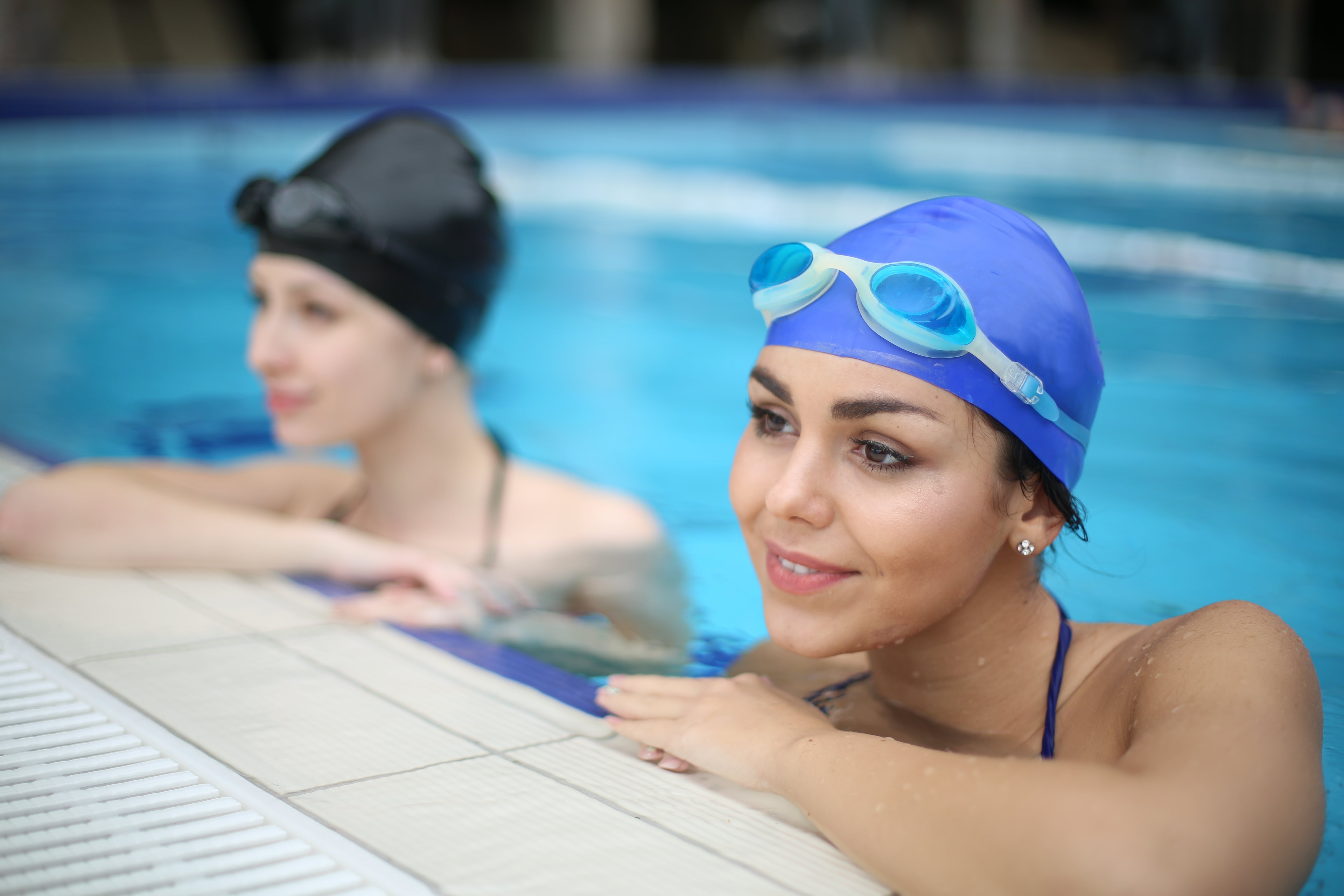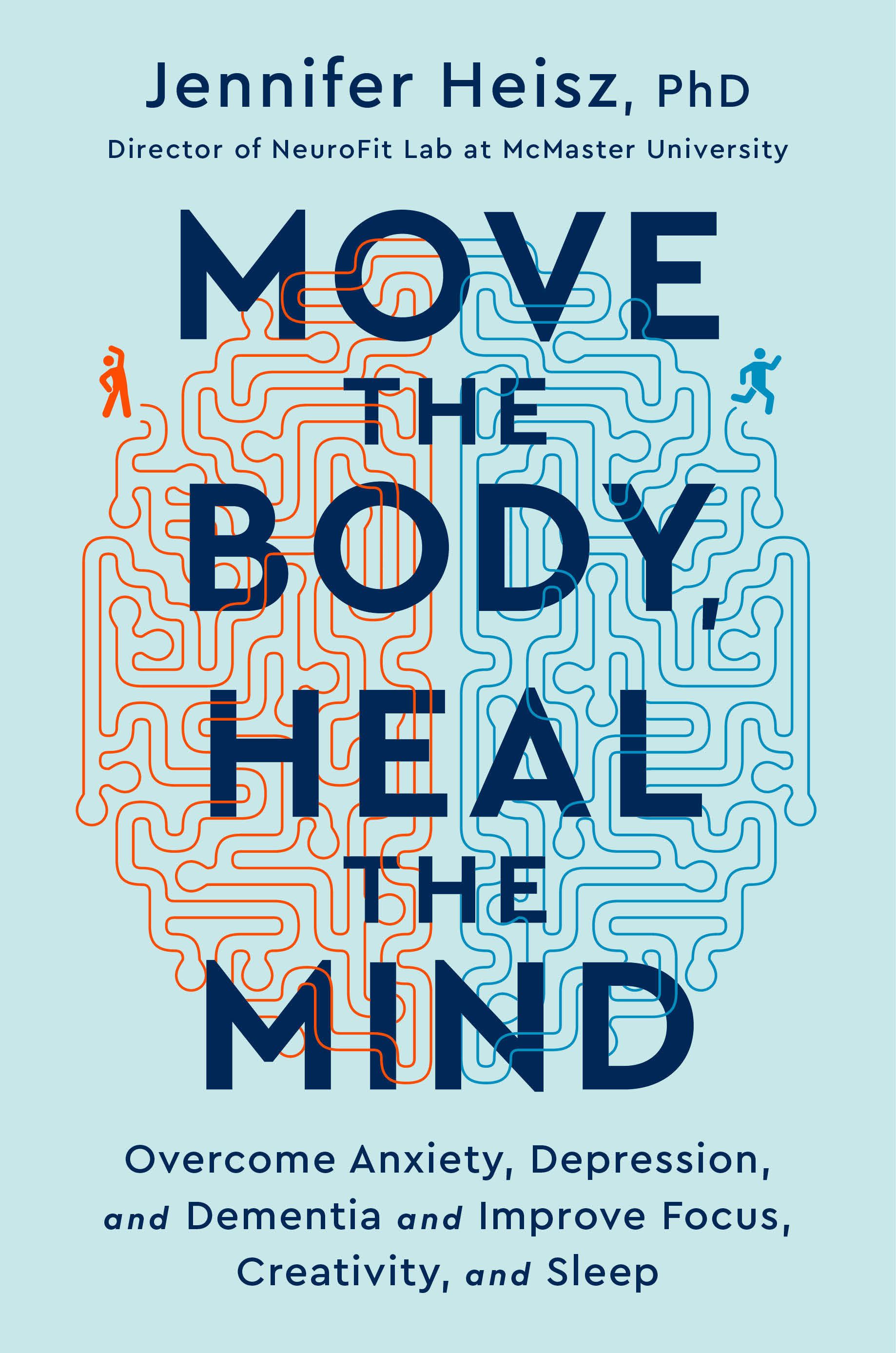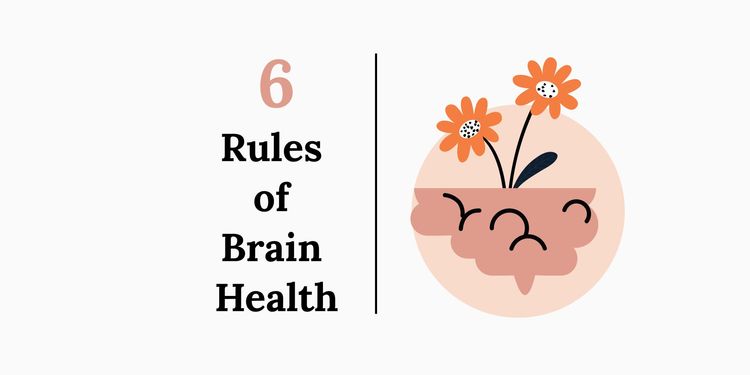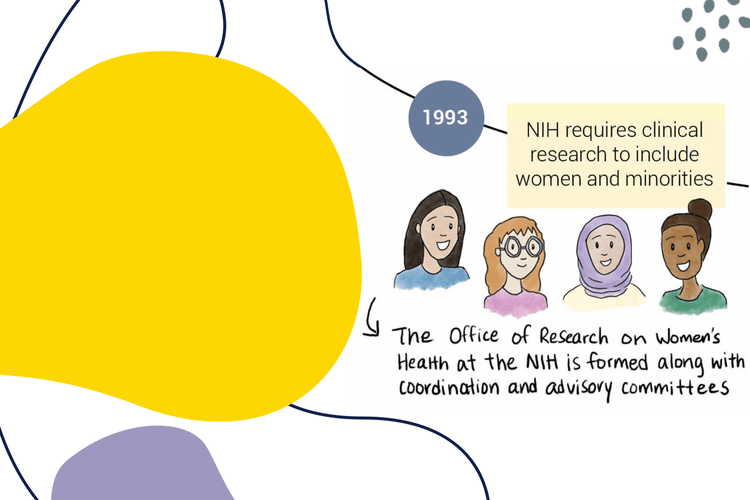
Oct 26, 2023, 4:00 am UTC
6 min
Created by
Exercise and Brain Health: Why women should prioritize movement
This article covers:
- What are the cognitive benefits of exercise?
- Does exercise type or intensity matter?
- What is the influence of age or life stage when exercising for brain health?
- How does exercise impact the brain?
- How can you make exercise part of your everyday life?
You’ve probably heard this refrain: Exercise is good for your brain.
While it’s common sense that what’s good for the body is also beneficial for the brain, exercise hasn't always been given the prominence it deserves in discussions about promoting brain health. Yet, the evidence is increasingly clear: Exercise lowers the risk of anxiety, depression, and dementia, and enhances cognition—how we think and remember.
What's more? Exercise may be particularly advantageous for females.
That’s exciting because it means exercise represents an accessible, cost-effective way to reduce the risk of Alzheimer’s disease and related dementias, particularly when combined with other lifestyle adjustments such as improving sleep, diet and maintaining social connections.
Women face a much higher lifetime risk of developing Alzheimer's disease and related dementias than men.
“Today, the evidence points to exercise as one of the greatest modifiable risk factors,” says Jennifer Heisz, Associate Professor in Kinesiology at McMaster University and author of Move the Body, Heal the Mind.
“It is especially critical for women, as they face a higher risk of Alzheimer’s disease compared with men,” stresses Heisz, who is also Canada Research Chair in Brain Health and Aging.
Heisz, along with numerous other researchers in brain health and exercise science, is working to understand how exercise exerts its effects and what types of exercise are most effective for different individuals. Their ultimate goal is to leverage the power of exercise to promote brain health and offer personalized recommendations — who, what, when, and how much — on staying active.
This message is particularly relevant to females in midlife and perimenopause, a time period that coincides with the onset of Alzheimer’s-related brain changes.
“I think what's crucial is getting out there and doing some form of physical activity, especially during midlife when women tend to be less active compared to men,” says Cindy Barha, Assistant Professor of Neuroscience in the Faculty of Kinesiology at the University of Calgary and Canadian Research Chair in Neuroscience, Brain Health, and Exercise.
In this article, we will explore the cognitive benefits of exercise, with a special focus on how it impacts females. We’ll delve into the science behind physical activity’s influence on the brain, identify which types of exercise yield the best results, and provide practical tips on making exercise a consistent part of your weekly routine.
What are the cognitive benefits of exercise?
Exercise offers a range of cognitive benefits, impacting various aspects of brain function and mental well-being. Some of these benefits are almost immediate, such as better focus and concentration, as well as a boost to creativity and problem-solving. Others accrue over a lifetime as a result of regular physical activity.
Here are a few of the cognitive benefits of exercise:
- Enhanced learning and memory,
- Improved executive functions such as planning, decision-making, and goal-setting,
- Slower cognitive decline.
Exercise also has knock-on effects on cognition by lifting mood, reducing stress, and improving sleep quality and duration.
“A 10-minute self-paced walk improves mood, reduces anxiety, boosts creativity and focus. It just has this immediate effect. And the regularity and consistency with which we do these activities fortifies the brain for the future and prevents brain health disorders like dementia. A term often used in the research to describe this defence is “brain reserve” or “cognitive reserve,” says Heisz.
These benefits extend to both men and women, but emerging evidence suggests that the female brain is particularly responsive exercise training.
Barha explains, "In the mid-2000s, research studies that had more females in them showed greater effects of exercise—especially aerobic exercise—on cognition." In her lab, she is building on those studies and investigating why females seem to respond more robustly to exercise than males.
In a recent systematic review and meta-analysis of 39 research studies on cognitively healthy older adults, Barha discovered that exercise, including aerobic, resistance, and multimodal training, notably improved cognitive performance in females. The most substantial benefits were observed in executive functions, which includes mental skills like working memory, flexible thinking, and self-control—all vital for daily life.
Does exercise type and intensity matter?
Most research on the brain health effects of exercise have focused on aerobic exercise—activities like brisk walking, swimming, running, or cycling that get the heart pumping. As a result, most exercise guidelines emphasize aerobic exercise.
But the body of evidence supporting the health benefits of resistance training—activities like weight lifting and high-intensity interval training that increase muscle strength and power—is growing.
When it comes to brain health, aerobic and resistance training appear to have varying effects. For instance, in Barha's analysis of the cognitive impacts of exercise, aerobic training resulted in more significant gains in executive function compared to resistance and multimodal training (a combination of the two types).
There is also evidence that resistance training improves executive functions as well as memory in older females—with and without cognitive impairment.
"Notably, we showed resistance training reduced the progression of existing small vessel disease in the brain. Small vessel disease in the brain is highly common in older adults and contributes to vascular cognitive impairment, the second most common type of dementia (next to Alzheimer's disease (AD), and can accelerate AD pathology," says Teresa Liu-Ambrose, Professor in the Department of Physical Therapy, and Canada Research Chair in Physical Activity, Mobility, and Cognitive Health.
Liu-Ambrose notes that resistance training is particularly important for females to counter muscle loss with aging (sarcopenia) and bone loss, and prevent frailty. There is a known interplay between sarcopenia, frailty, and dementia, she adds.
"We need the message to be, 'Do what you like, do a mix of things, add in some intensity, and do them as much as you can.'"
—Jennifer Heisz, Associate Professor in Kinesiology at McMaster University and author of Move the Body, Heal the Mind.
The intensity of exercise plays a role as well. Exercise guidelines in the U.S., Canada, and from the World Health Organization emphasize moderate-to-vigorous intensity exercise for optimal brain health.
 Heisz says this recommendation hits the mark. "Research from our lab and others is suggesting that older adults need to pick it up. They need to be above a certain intensity."
Heisz says this recommendation hits the mark. "Research from our lab and others is suggesting that older adults need to pick it up. They need to be above a certain intensity."
Her research demonstrates that interval walking, a combination of steady-paced walking and intervals of higher intensity, significantly enhances memory compared to regular walking or seated stretching.
There isn't a specific intensity target. Instead, what counts as moderate-to-vigorous exercise will vary from person to person.
Even as new evidence emerges about the brain benefits of different types of exercise and intensity levels, Heisz says the prescription doesn't need to be complex: "We need the message to be, 'Do what you like, do a mix of things, add in some intensity, and do them as much as you can.'"
 All types of exercise benefit the brain, but there are differences between the effects of aerobic and anaerobic exercise. Infographic by Cat Lau. (References below.)
All types of exercise benefit the brain, but there are differences between the effects of aerobic and anaerobic exercise. Infographic by Cat Lau. (References below.)What is the influence of age or life stage when exercising for brain health?
In her research, Barha is delving into how hormone-related life stages such as pregnancy and menopause influence the brain's response to exercise later in life.
Sex hormones aren't just important for fertility and reproduction, they also also play crucial roles in brain health.
“Your reproductive history changes the way your brain ages," says Barha. "I'm starting to see that previous reproductive experiences, such as number of pregnancies, the way your brain changes and also change the way exercise can be used as intervention."
Perimenopause, also known as the menopause transition, represents a pivotal period in which the brain undergoes significant changes. Barha hypothesizes that it may represent a window of opportunity during which lifestyle interventions like exercise can change the trajectory of brain aging and promote cognitive health.
Liu-Ambrose agrees: "There is evidence to show that females, in late life, may benefit more so from exercise. I think that’s important and exciting because females do accrue more risk factors for cognitive impairment and dementia with the menopause transition. So I think it’s not just about what type of exercise but when to intervene as well for women," she says.
Eventually, it may be possible to personalize exercise interventions for brain health based on sex and age, and also reproductive stage and history.
How does exercise impact the brain?
Exercise is evidently a powerful stimulus for the brain. However, researchers are still uncovering the many ways in which exercise positively impacts cognitive health.
One crucial mechanism is increased blood flow, which transports oxygen and vital nutrients to brain cells, fostering optimal cognitive function. Additionally, exercise induces the release of neurotransmitters, including serotonin, dopamine, and endorphins, which play a pivotal role in regulating mood and reducing anxiety.
Barha also emphasizes the significance of brain-derived neurotrophic factior (BDNF), a protein produced in the brain, gut, and other tissues. "BDNF is important for neuronal health and plasticity. It's like a super vitamin for your brain."
"BDNF is important for neuronal health and plasticity. It's like a super vitamin for your brain."
—Cindy Barha, Assistant Professor of Neuroscience in the Faculty of Kinesiology at the University of Calgary.
Research indicates that physical activity leads to the release of BDNF, contributing to improved cognitive performance. Furthermore, a recent analysis by Barha suggests that females experience a more substantial increase in BDNF following aerobic training than males, which may partly explain their heightened cognitive response to exercise.
BDNF may also mediate the cognitive benefits of moderate-to-vigorous exercise.
Lactate (lactic acid), often portrayed in fitness classes as a "villain," is actually an essential fuel source for brain cells and promotes BDNF.
Heisz explains, "There's something special about higher-intensity exercise. It seems to be linked to lactate, which is then linked to BDNF. The picture is still evolving, but it's clear that the muscles and the brain are in constant communication, and contracting the muscles with movement provides this incredible stimulus for brain plasticity."
How can you make exercise part of your everyday life?
The brain benefits of regular exercise may be getting more evident every day, but that doesn't make it any easier to make movement routine.
Heisz attributes this to the brain's evolutionary wiring.
“When the brain evolved, resources were scarce, and people had to expend a lot of energy to attain them. The brain was designed to conserve energy. As a result, any voluntary movement is seen as an extravagant expense. And so the brain is wired to talk you out of moving when you don't need to,” she says. “Fortunately, we've evolved logical brain regions that can override this.”
She offers five evidence-based tips to incorporate exercise into your daily routine:
1. Schedule exercise. Block time in your calendar for exercise, specifying the what, where, when, and with whom. Detailed scheduling helps you stick to it.
2. Listen to music. Enjoy your favorite music while exercising. It triggers the release of dopamine, the "happy hormone." Matching your step to the music can also make movement seem less effortful.
3. Workout with others. In one study, older adults who worked out with others instead of alone had better health outcomes—even though they didn’t work as hard. Working out with others also promotes social connection, which positively affects cognition.
4. Practice mindful movement. Apply mindfulness to various types of exercise, focusing on movement, rhythmic breathing, and muscle contractions. This approach makes exercise feel more effortless and can foster a positive relationship with physical activity.
5. Swish something sweet. Trick your brain into perceiving an abundance of energy by swishing a sugary drink in your mouth and then spitting it out. This simple technique can convince the brain that resources are ample, providing an energy boost when you need it.
Infographic references:
- Mandolesi L, Polverino A, Montuori S, Foti F, Ferraioli G, Sorrentino P, Sorrentino G. Effects of Physical Exercise on Cognitive Functioning and Wellbeing: Biological and Psychological Benefits. Front Psychol. 2018 Apr 27;9:509.
- Herold, F., Törpel, A., Schega, L. et al. Functional and/or structural brain changes in response to resistance exercises and resistance training lead to cognitive improvements – a systematic review. Eur Rev Aging Phys Act 16, 10 (2019).
- Ferrer-Uris B, Ramos MA, Busquets A, Angulo-Barroso R. Can exercise shape your brain? A review of aerobic exercise effects on cognitive function and neuro-physiological underpinning mechanisms. AIMS Neurosci. 2022 Apr 2;9(2):150-174.


